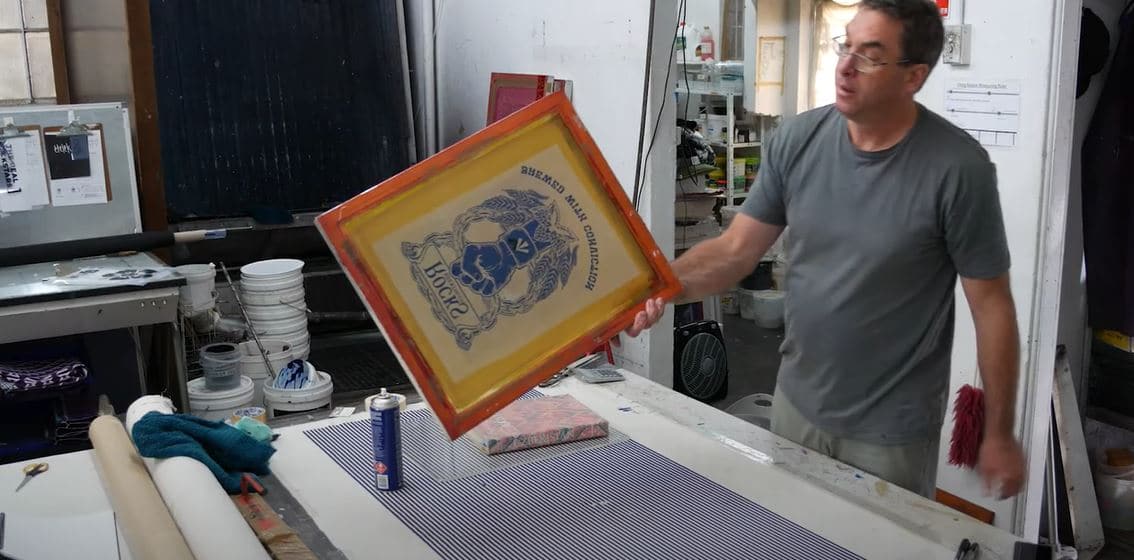ChatGPT said: 10:9 Design Company FAQs: answers to your top questions about their services
The Important Overview to Understanding Screen Printing and Its Versatile Makes use of
Screen printing has a rich background that dates back to ancient times, developing right into a sophisticated strategy used across numerous industries today. This guide discovers the ins and outs of the screen printing procedure, detailing its applications in home, style, and advertising and marketing décor - 10:9 Design Abilene. Comprehending these principles can open creative possibility for both commercial and creative jobs. The adhering to areas will certainly disclose important pointers and techniques to enhance one's screen printing ventures
The History of Screen Printing
Screen printing has origins that trace back centuries, its evolution reflects the imaginative and technological improvements of different cultures. Originating in old China, the strategy was originally made use of for enhancing textiles and later infect Japan, where it came to be indispensable to Ukiyo-e woodblock printing. The technique moved to Europe in the 18th century, where it gained appeal amongst craftsmens and business printers. The creation of image emulsion in the 20th century reinvented screen printing, enabling more intricate styles and greater performance. Musicians like Andy Warhol additionally thrust its popularity, making use of the medium to develop famous works that combined commercialism and art. By the late 20th century, screen printing had developed itself as a versatile method, employed in vogue, marketing, and fine art. Today, it proceeds to evolve, incorporating digital innovation and increasing its applications across numerous industries.
The Screen Printing Refine Explained
Screen printing transforms creative visions into substantial styles with a collection of accurate actions. An image is produced and then moved onto a screen, normally made of fine mesh material stretched over a structure. A light-sensitive solution is put on the screen, which is subjected to light, solidifying in locations not covered by the image. After rinsing the unhardened solution, a pattern is created.
Next, the screen is placed over the substratum, whether it be fabric, paper, or one more product. Ink is after that pushed with the open locations of the pattern making use of a squeegee, depositing the layout onto the substrate listed below. This procedure can be repeated for numerous shades, needing separate screens for each tone. The published product is treated making use of heat to guarantee the ink sticks properly, resulting in a durable, vibrant layout all set for usage.
Sorts Of Screen Printing Techniques
In addition, specialized methods, such as discharge screen printing, remove dye from the textile to develop softer prints, while foil screen printing applies metal aluminum foil to accomplish a glossy surface (10:9 Design Abilene). Each technique uses unique qualities, accommodating numerous innovative needs and manufacturing scales, inevitably broadening the possibilities within the screen printing domain
Applications of Screen Printing in Various Industries

Additionally, the signs and marketing sectors make use of screen printing for developing distinctive displays and banners. This approach allows for strong shades and intricate styles that capture focus. In electronic devices, screen printing is employed for using conductive inks to motherboard, vital for part connections. The home decoration sector embraces screen printing to produce unique styles on fabrics and wall art. Generally, screen printing acts as a crucial device throughout varied fields, improving items with individualized and visually enticing graphics.
Tips for Effective Screen Printing Projects
While taking on a screen printing task, mindful focus to check here detail can substantially boost the last result. Initially, selecting high-grade products is vital; this includes the screen, inks, and substrates. Utilizing suitable mesh counts can influence ink deposition and information resolution. Preparation is equally vital; thorough cleansing of screens and proper exposure times guarantee crisp prints.
Next, accurate enrollment is critical for multi-color prints. Making use of alignment devices can assist achieve specific layering. Furthermore, testing prints on scrap products prior to manufacturing aids recognize prospective concerns without losing resources.

Regularly Asked Concerns
What Materials Are Ideal for Screen Printing on Material?
Cotton and polyester blends are optimal for screen printing on fabric because of their resilience and ink absorption. In addition, specialty fabrics like silk or canvas can create unique structures and finishes, boosting the overall layout quality.
Just how Do I Tidy and Maintain Screen Printing Equipment?
To keep and clean screen printing tools, one must frequently wash displays with proper solvents, inspect mops for wear, oil relocating parts, and store all items in a dry, dust-free atmosphere to lengthen their life-span.
What Are the Ecological Effects of Screen Printing?
Screen printing can have substantial environmental effects, consisting of chemical waste from solvents and inks, water usage during cleansing processes, and energy usage. Eco-friendly materials and sustainable practices are essential for lessening these adverse results.
Can Screen Printing Be Done at Home Successfully?
Screen printing can be properly done at home with the ideal products and strategies. Enthusiasts can create quality prints, though success depends on their skill level, equipment, and understanding of the process involved.
What Are the Costs Connected With Starting a Screen Printing Business?

Starting a screen printing organization includes costs for equipment, products, and office. Initial expenditures typically vary from a few hundred to several thousand dollars, relying on the scale, quality of machinery, and preferred manufacturing ability.
Screen printing has a rich background that dates back to old times, developing right into an advanced strategy utilized throughout various sectors today. Another method, rotary screen printing, uses cylindrical displays, assisting in continuous printing on material rolls, consequently enhancing performance for large-scale productions. In addition, specialty methods, such as discharge screen printing, get rid of dye from the material to create softer prints, while foil screen printing uses metal foil to attain a shiny surface. In the style industry, screen printing is widely made use of to produce vivid styles on apparel, making it possible for brand names to showcase their distinct designs. Cotton and polyester blends are excellent for screen printing on fabric due to their durability and ink absorption.